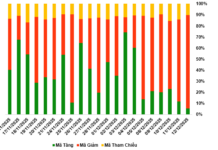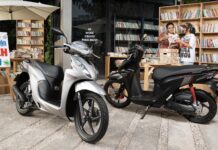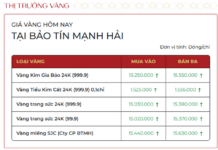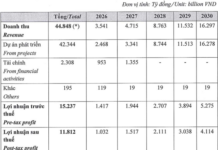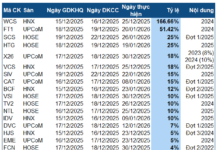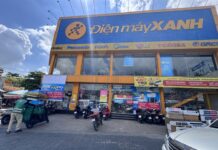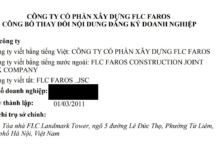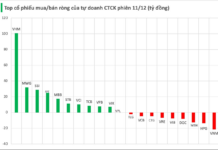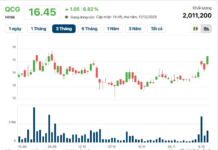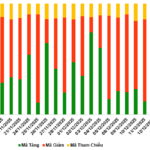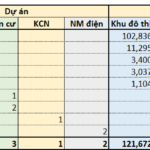About a month ago, self-driving car rental apps predicted that the demand for car rentals during the Lunar New Year would not be as good as last year, but they still expected an increase in bookings close to the holiday. However, after the 23rd of December, many apps were still struggling with low demand.
Short-term rentals
In anticipation of increased demand for self-driving car rentals during the Lunar New Year, BonbonCar app prepared nearly 100 cars of various models, ranging from sedans, SUVs, to 7-seater MPVs.
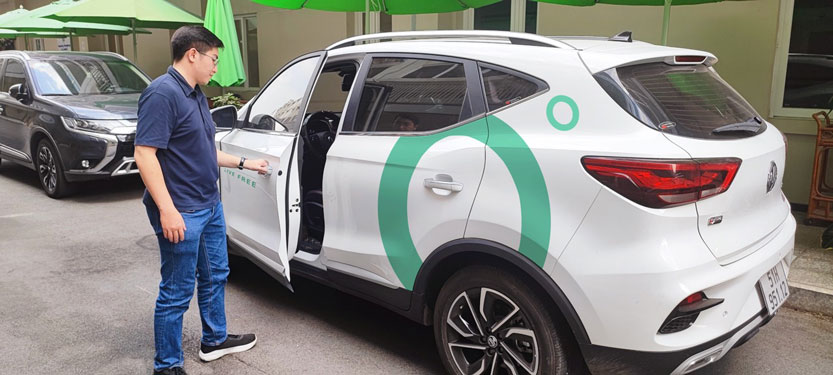
The self-driving car rental market is crowded with numerous apps and car manufacturers
Mr. Le Khac Hieu, CEO of BonbonCar, stated that in addition to the existing gas, diesel, and hybrid cars, this year the app also added electric cars to expand options and enhance the customer experience. Furthermore, the company introduced short-term rental packages, allowing customers to rent a car for just a few hours, in addition to the longer rental options. BonbonCar’s rental packages include 4 hours, 8 hours, 12 hours, 24 hours, or multiple days. Customers are able to pick up and return the cars 24/7, maximizing their usage and saving costs.
According to Mr. Nguyen Van Long, Director of Sigo Vietnam Co., Ltd., in previous years, customers would make rental bookings well in advance of the 23rd of December. However, this year, there are still 50 cars available that have not been booked yet.
“Due to the economic difficulties, many people have reduced their travel plans and return trips to their hometowns during the Lunar New Year. Therefore, instead of opting for a 10-day package, customers are requesting rentals for less than a week or even just 3-4 days. Given this situation, if we don’t accept short-term rentals, we won’t be able to find customers,” Mr. Long explained.
In the past, customers who opted for short-term rental packages would typically have to pay a higher daily rate compared to the longer rental packages. However, this year, the average daily rental rate for short-term packages is equivalent to that of the longer packages. For example, with Sigo Vietnam Co., Ltd., the cost of renting a Class A car for 10 days is about 10 million VND, whereas if customers rent for 3-4 days, they only have to pay approximately 1 million VND per day.
Strong discounts
Admitting that the number of customers has significantly decreased compared to the same period last year, Ms. Le Thi Thu Trang, CEO of EzBook Vietnam Co., Ltd., said they had to offer a 10% – 20% discount on their car rental services, but the number of customers still did not meet their expectations. Similarly, some car rental apps have lowered their prices by 30% – 40% this year instead of increasing them by 50% – 100% as usual.
“Last year, if customers made bookings 1.5 to 2 months before the Lunar New Year, the rental prices would increase by 30% compared to regular days, and the closer it got to the holiday, the higher the prices would be. Many rental companies didn’t have enough cars to meet the demand,” a car rental app CEO stated.
A new development this Lunar New Year is that VinFast, a Vietnamese car manufacturer, has also entered the self-driving car rental market with their electric vehicles. Many customers are excited to experience these brand new cars, as traditional car rental apps mainly provide older models.
In terms of costs, VinFast offers rental prices ranging from 12 to 34 million VND for a 10-day rental during the Lunar New Year, which is higher than the prices offered by other service providers. However, the operating costs of electric cars are much lower compared to gasoline cars. The presence of VinFast in the market has increased the supply and competition, making it challenging for many car rental apps.
Some second-hand car shops have also joined the rental service and offered competitive prices. “We are struggling to sell used cars, given the slow market, high rental costs, and large bank loans. Therefore, we have to adapt our business strategy to survive,” explained the owner of a second-hand car shop in Thu Duc City, Ho Chi Minh City.
Beware of scams
Renting cars through websites and apps has become increasingly popular, along with the development of technology, which has led many people to fall into scams. According to research, there have been cases where customers saw attractive prices online and transferred a 30%-50% deposit. However, when it was time to pick up the car, customers couldn’t contact the rental company. In some cases, app employees took advantage of the company’s reputation to fraudulently obtain customer deposits and then disappear.

